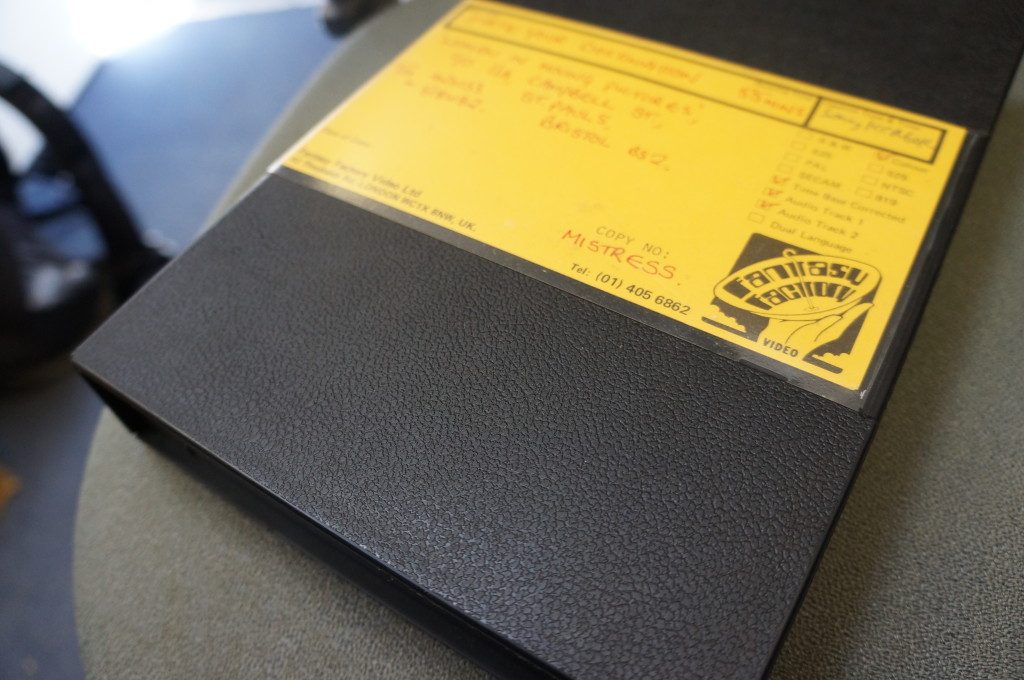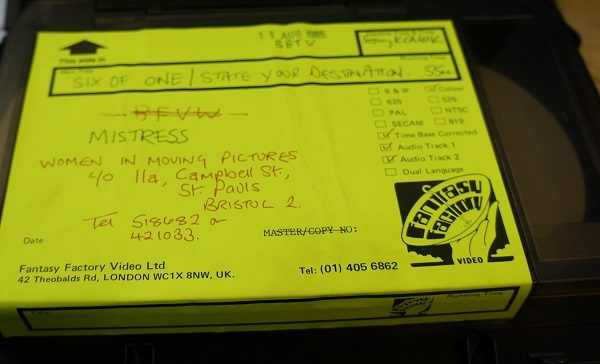
Part of this process was reinventing the world in wimmin’s image, word and song; to create and reclaim a lasting herstory in which sisterhood could flourish.
A recent U-Matic video tape transfer conducted in the Greatbear studio offers a window into this cultural heritage.
State Your Destination was a film made by Bristol-based ’80s feminist film collective Women in Moving Pictures (W.I.M.P.S.), whose complete archive is stored at the Feminist Archive South.
We previously migrated another film by W.I.M.P.S called In Our Own Time, screened at the recent Translation/ Transmission Women’s Film Season which took place at Watershed.
The way women shirked the language of patriarchy is evident on the tape box. We digitised the ‘MISTRESS’ copy, not the master copy.
Seeing the mistress copy today is a reminder of the way gendered language influences how we can think about cultural forms. The master copy, of course, in conventional understanding, is the finished article, the final cut. The master of the house – the person in charge – is gendered male. Yet is this still the case?

Writing about a similar issue almost thirty years later, sound theorists Jonathan Sterne and Tara Rodgers seem to think so:
‘If we find that audio-technical discourse renders signal processing in terms of masculinist languages of mastery and domination of nature, can we help but wonder after its broader social implications? Does it not also suggest a gendered set of relations to these technologies? It is any wonder we still find the design, implementation, marketing, and use of audio-signal processing technologies to be male-dominated fields? [To change things] it will require fundamentally rethinking how we model, describe, interact, and sound with signal processing technologies’.
For feminist women who felt systematically excluded from certain kinds of cultural and economic activity, the gendering of language was an extension of violence they experienced because they were women.
Making the tape a MISTRESS may help rectify the problem, as does crossing out the very idea of a master copy.

